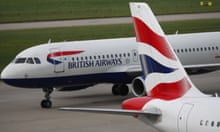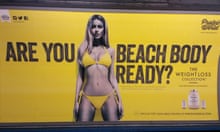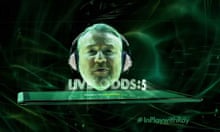Claims made by UK universities to attract students have been called into question after the University of Reading was forced to withdraw its assertion that it was in the top 1% of institutions globally.
The university agreed to remove the claim from its website and other marketing materials after a complaint was made to the advertising watchdog, the Advertising Standards Authority (ASA), in April.
The complainant argued that Reading University’s claim to be in the top 1% of the world’s universities was “misleading and could not be substantiated”. The ASA contacted the university who agreed to remove the claim without the need for a full investigation.
The move has sent shockwaves through the university sector, which has become increasingly competitive since the introduction of tuition fees, with UK institutions competing against each other and institutions around the world for students from home and abroad.
A number of other universities in the UK make the same top 1% assertion – including Southampton and Queen’s University Belfast – and could now find themselves under pressure to prove it after the ASA ruling.
Reading’s claim is based on its position in the top 200 universities in the world, according to the QS and Times Higher Education rankings, which are among the most credible of a growing number of global university league tables.
According to the QS rankings, the latest of which were published on Wednesday, the University of Reading is ranked number 188 in the world.
Charles Heymann, head of corporate communications at Reading, said there were estimated to be more than 20,000 universities around the world. “Therefore, like scores of universities around the world, we had in good faith equated being in the top 200 as being in the top 1% of universities in the world.”
But because no ranking system assesses every single university worldwide, Reading was forced to admit its assertion could not be proved.
Now, in place of the top 1% claim, the university website celebrates being in the top 200 universities worldwide. “We accept the ruling in relation to us,” said Heymann. “But we’ve got scores of our competitors in the UK and around the world who are making this claim.
“This has big implications for how UK universities market themselves in the UK and internationally and there needs to be a level playing field.”
Southampton University, for one, is not planning to withdraw its claim to be in the top 1%. A statement said: “The University of Southampton’s position in the top 1% of universities in the world has again been corroborated by the QS World University Rankings this week.
“The QS examines the very best universities globally, of the 26,000 existing worldwide. With Southampton ranked at 102, this places the institution in the top 1%. This position is based on a long-established sector precedent and we have confidence it accurately reflects our place in the world.”
Nick Hillman, director of the Higher Education Policy Institute thinktank, said the ASA ruling was a reminder that university marketing departments should ensure their claims were robust and evidence-based.
“Between 30 and 40 UK universities currently claim to be in the top 10 at the moment, which proves such claims need to be taken with a massive dose of salt while also showing just how many league tables there now are.”









